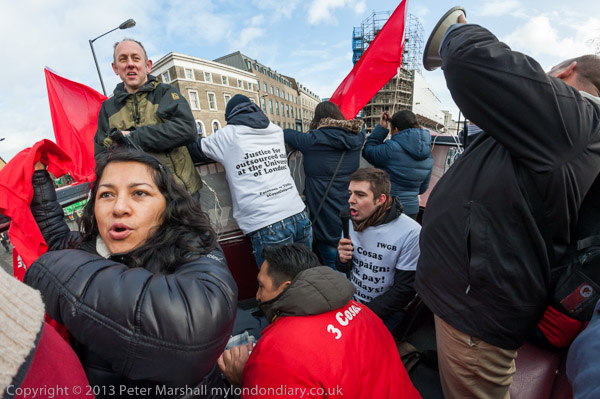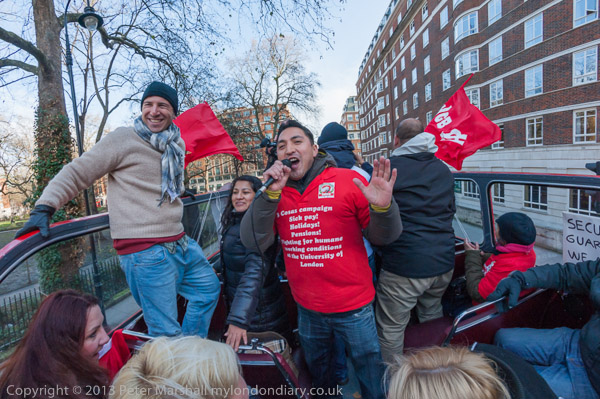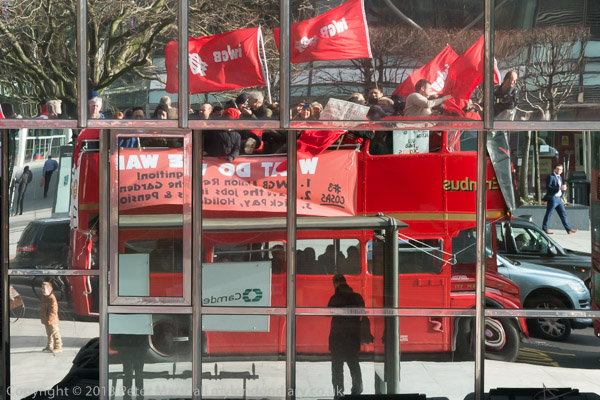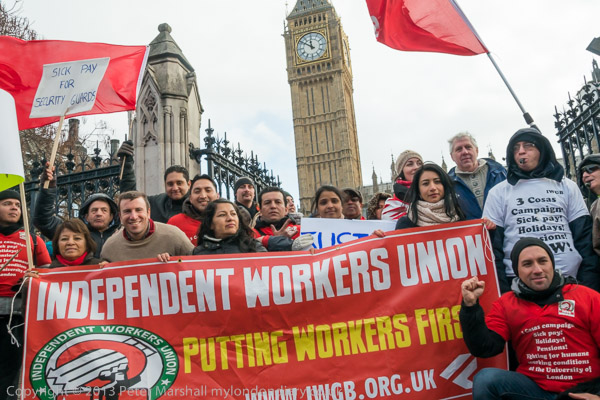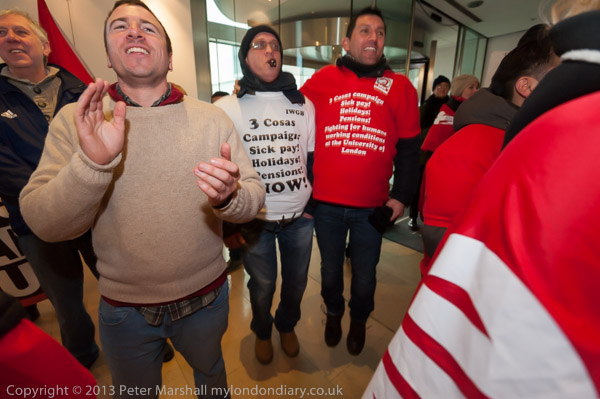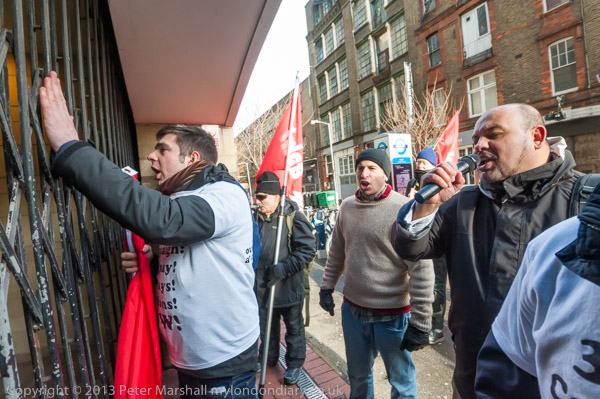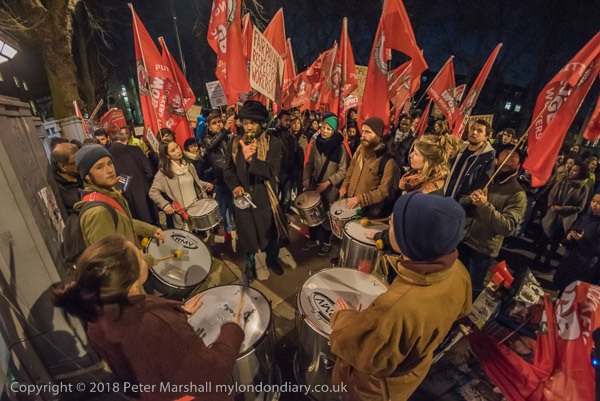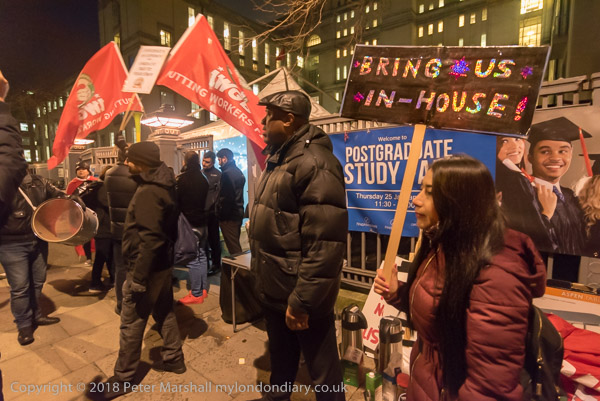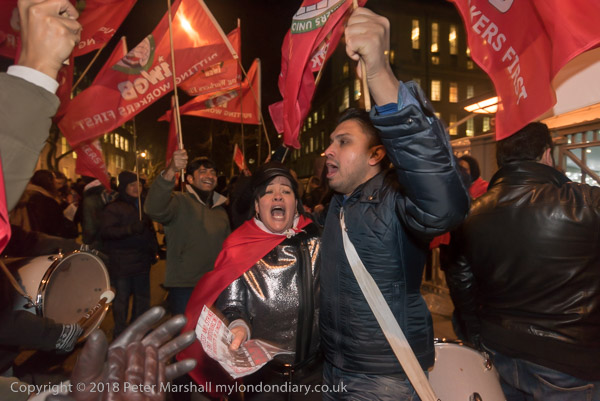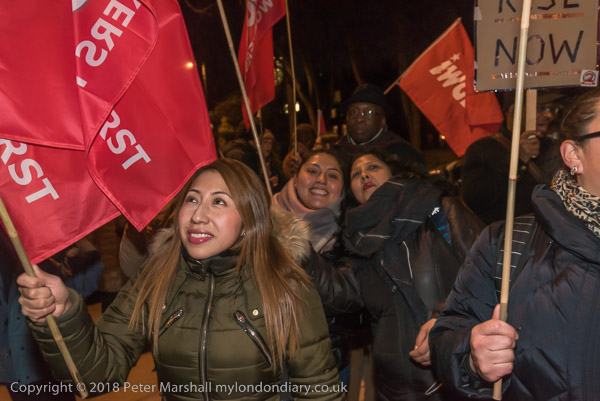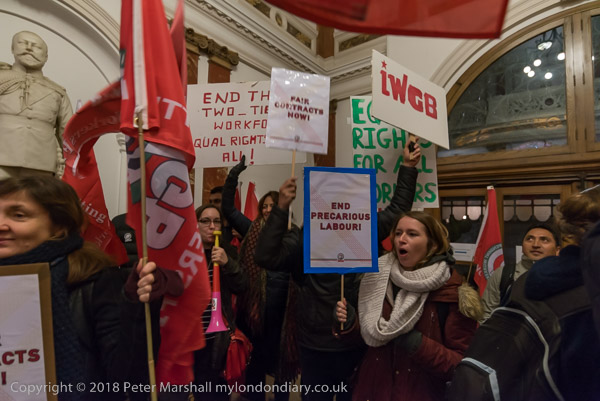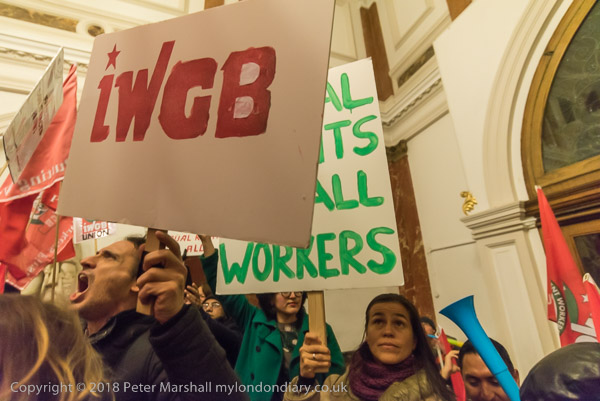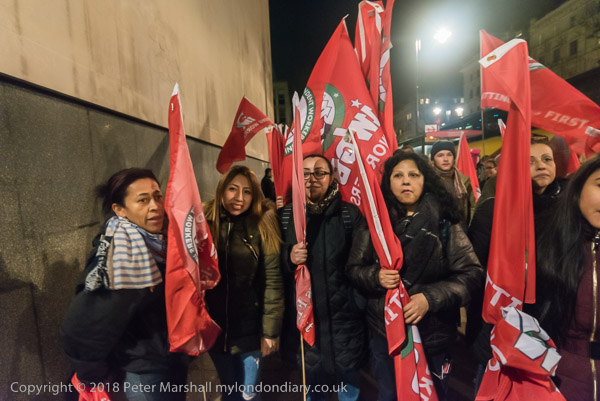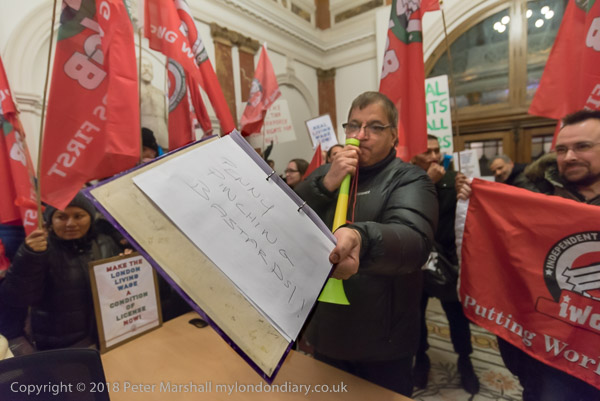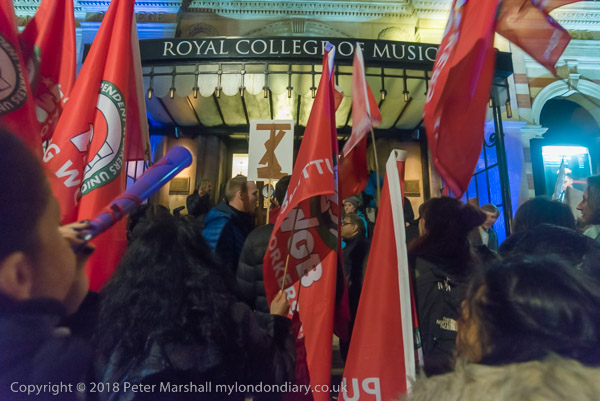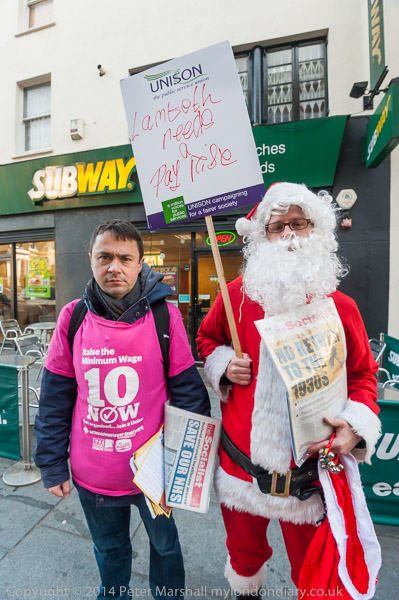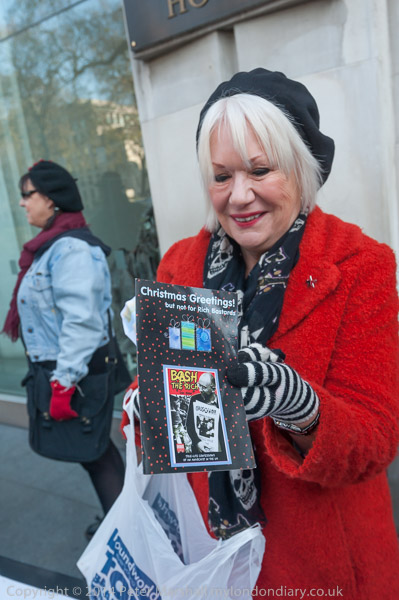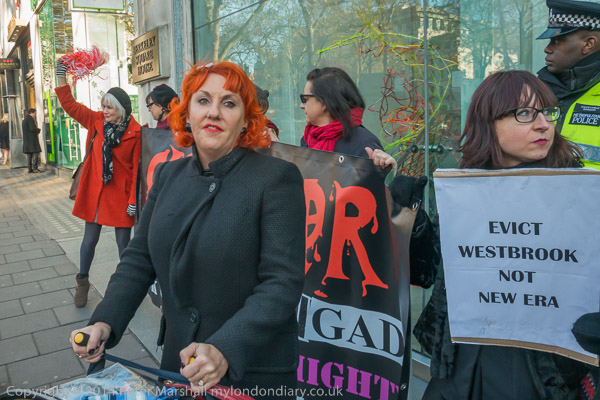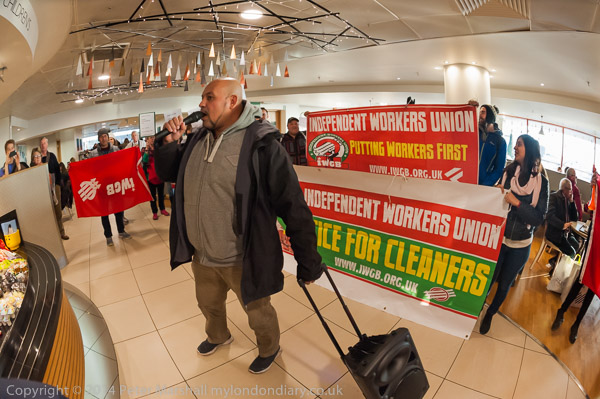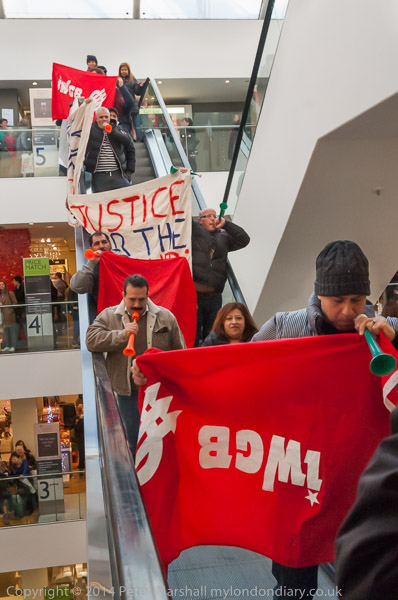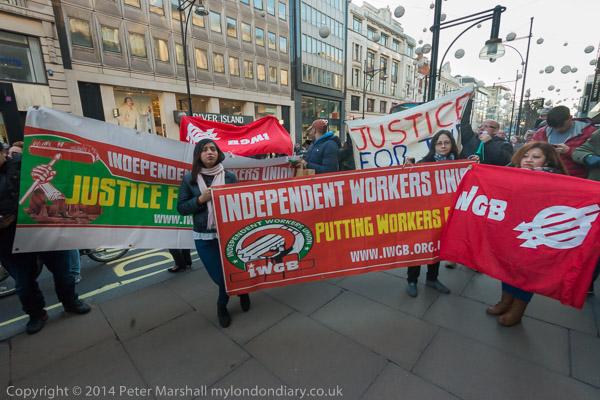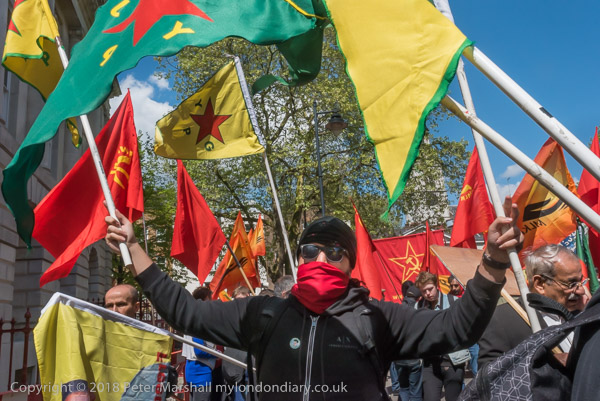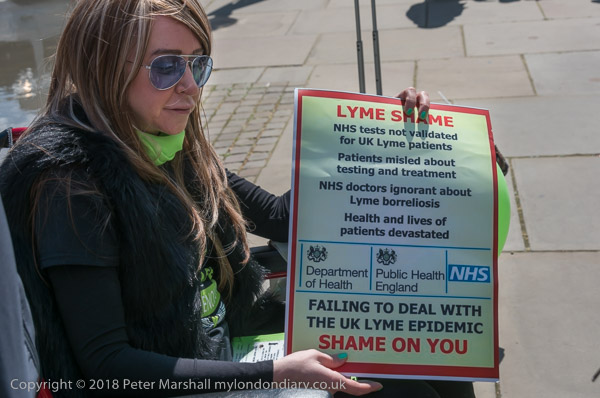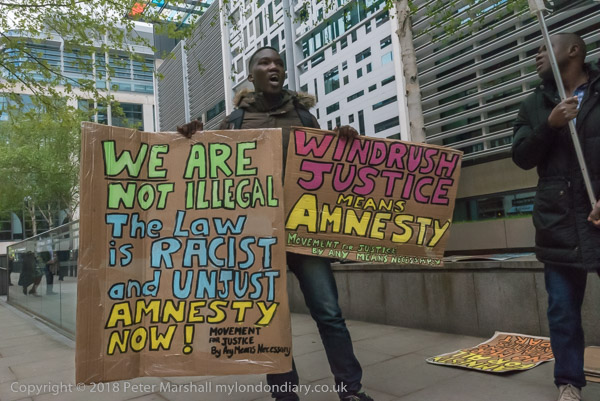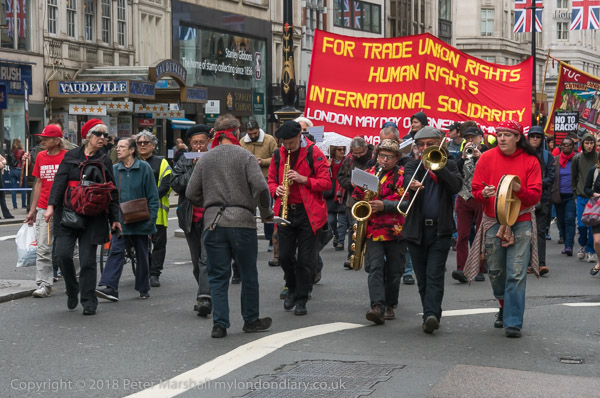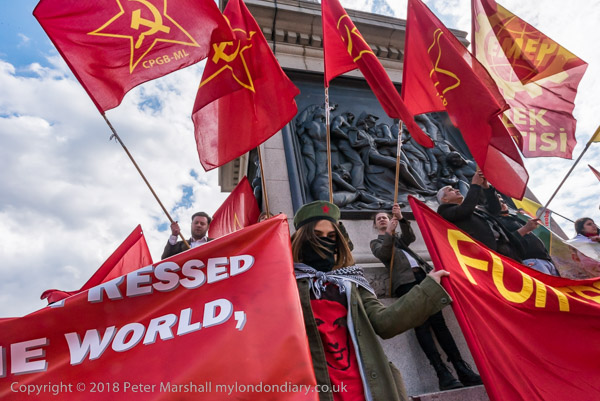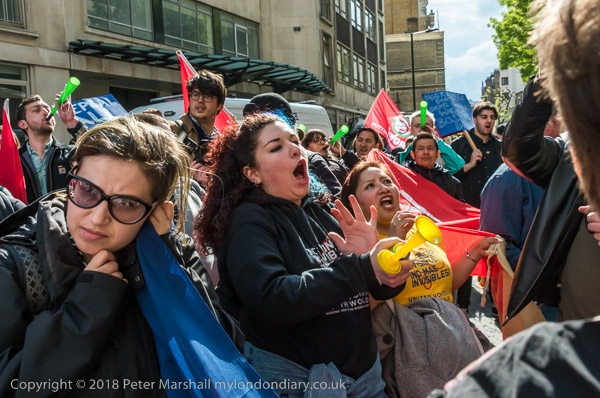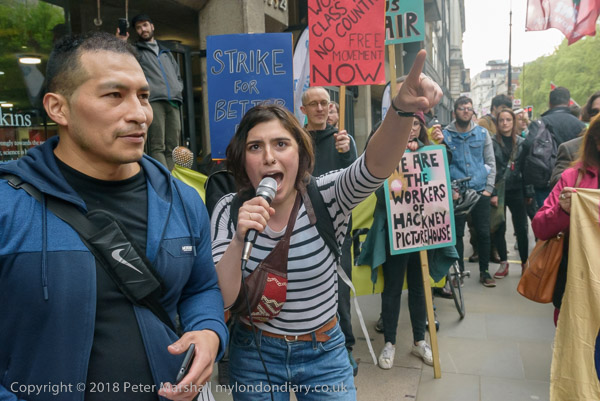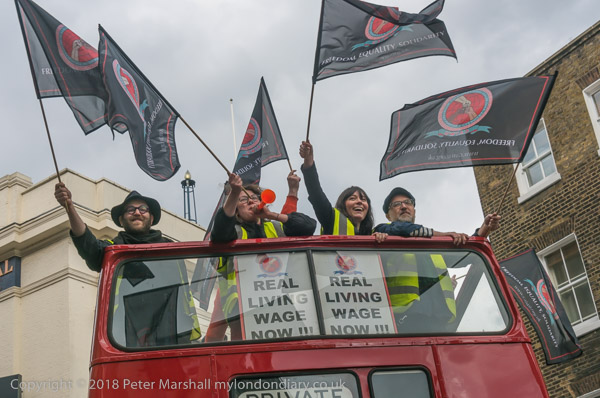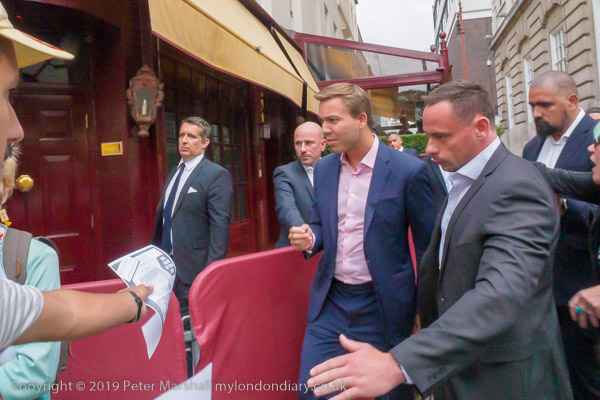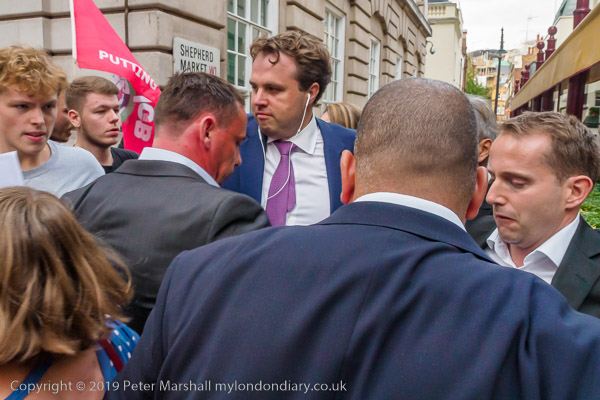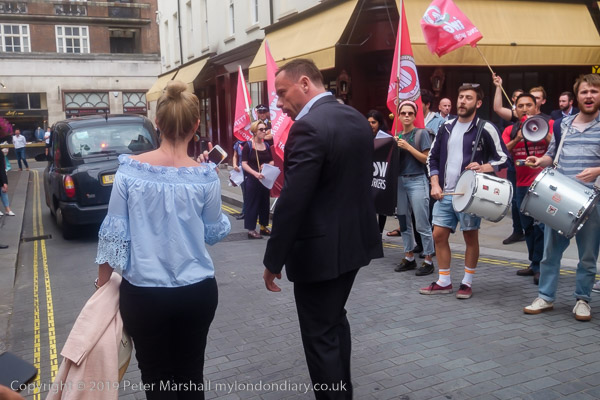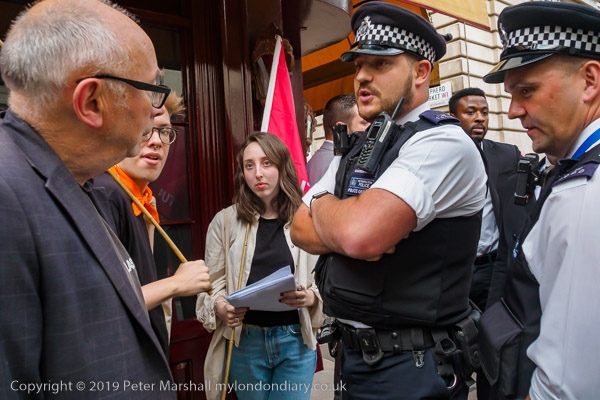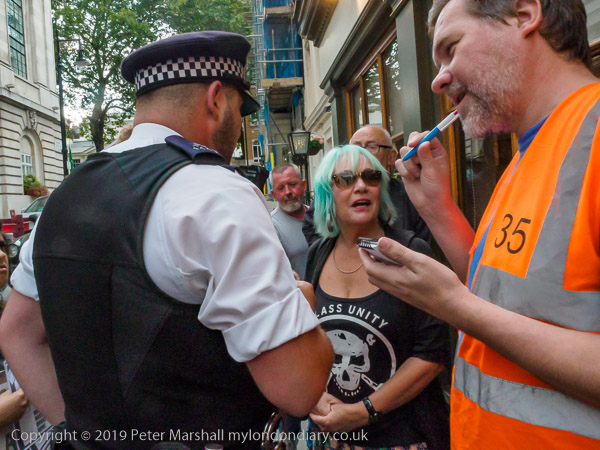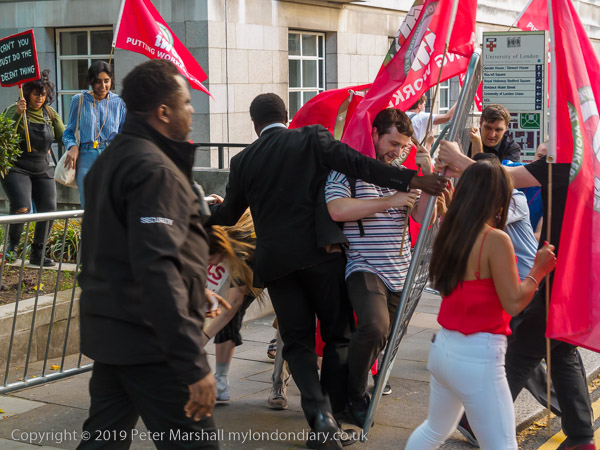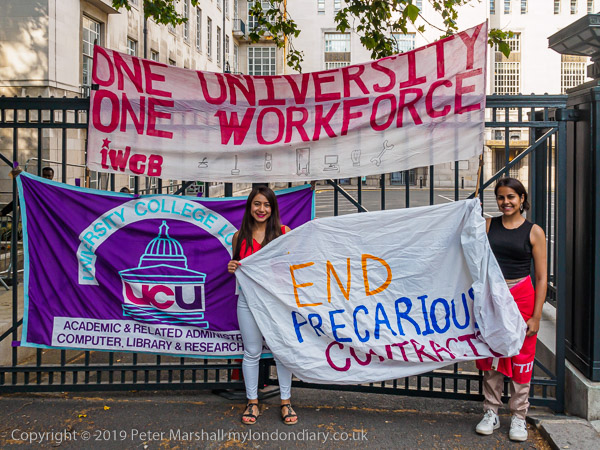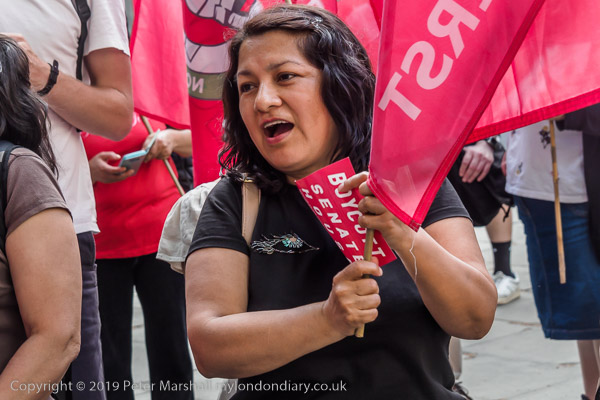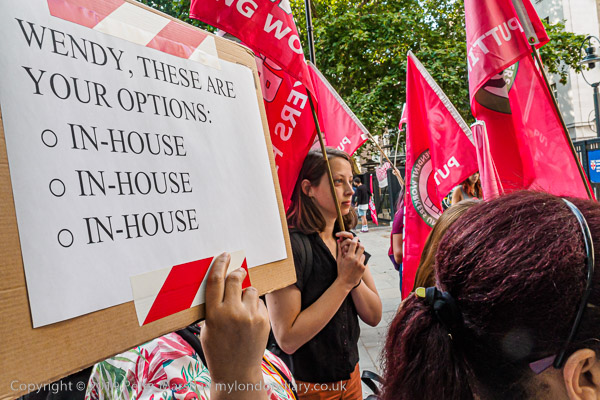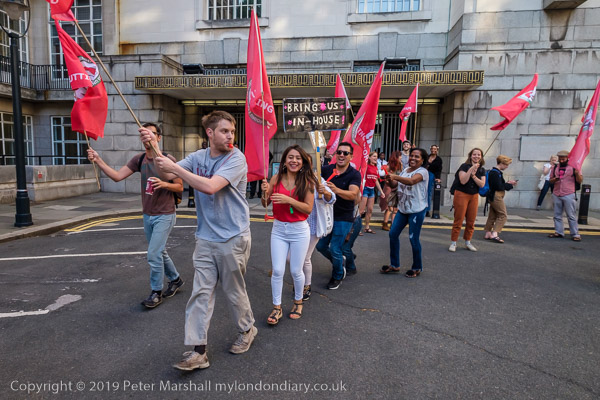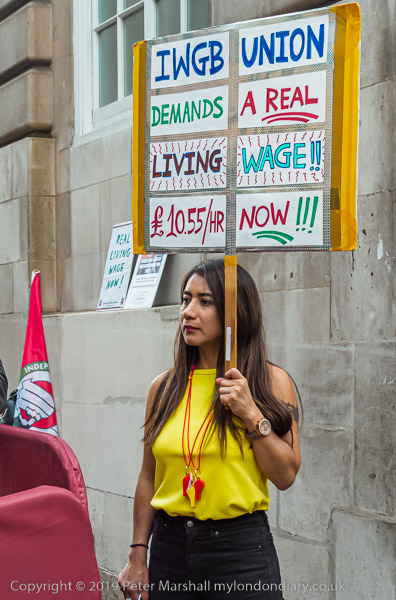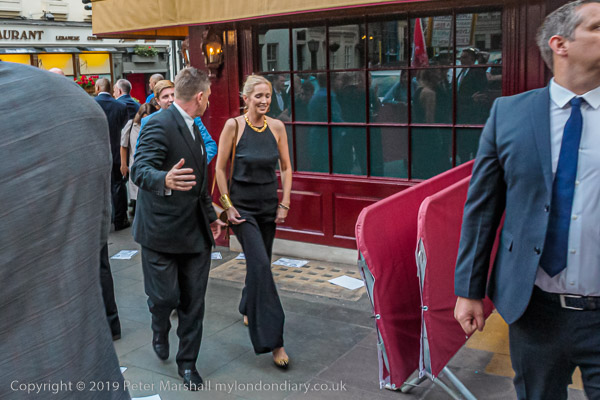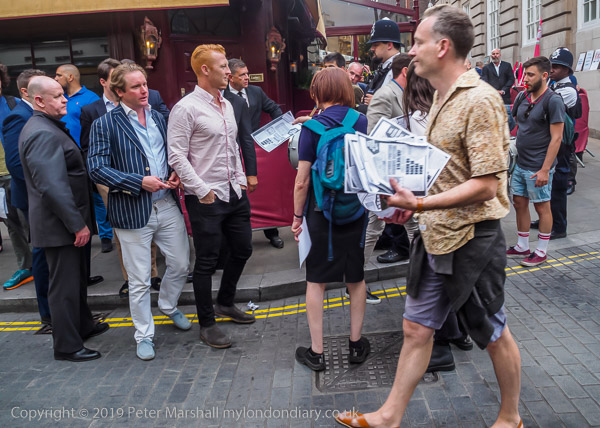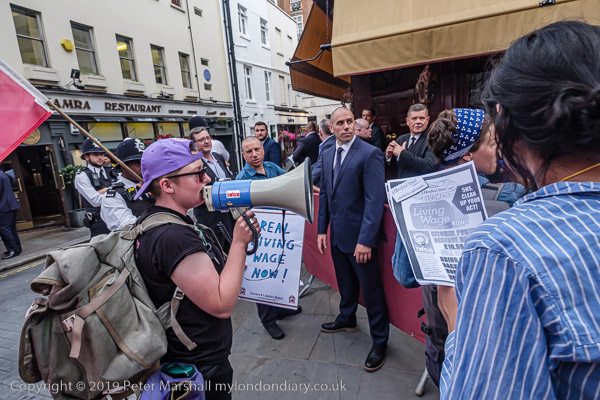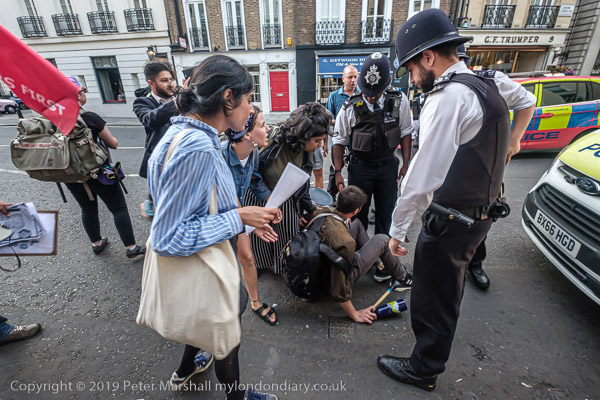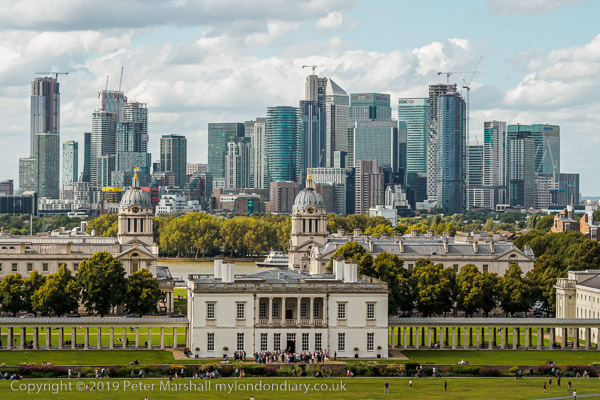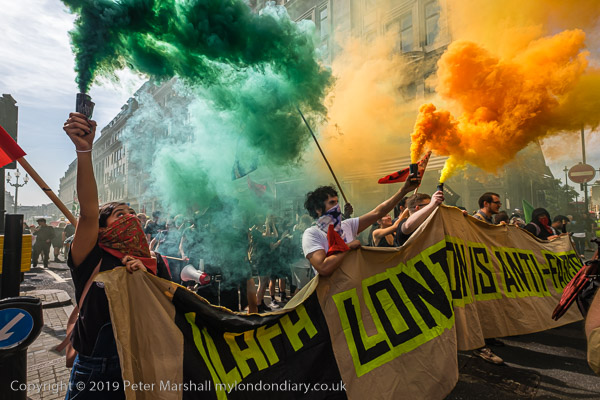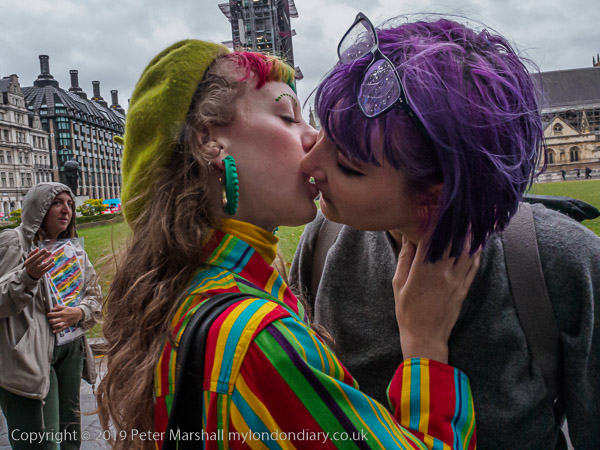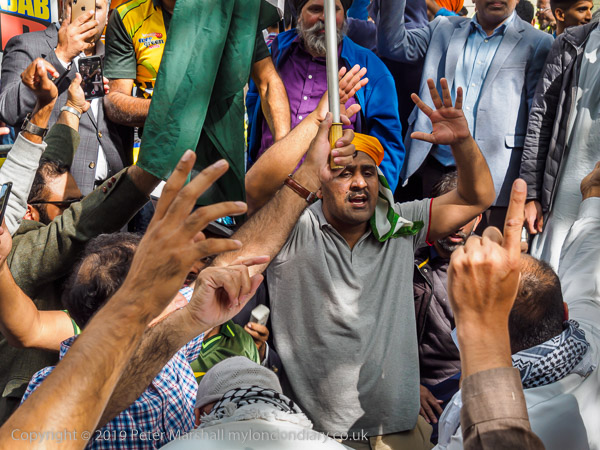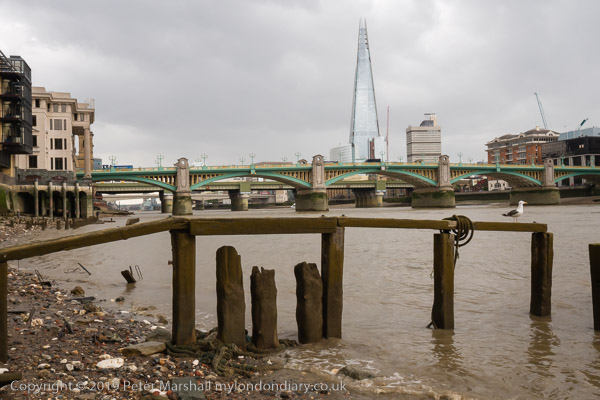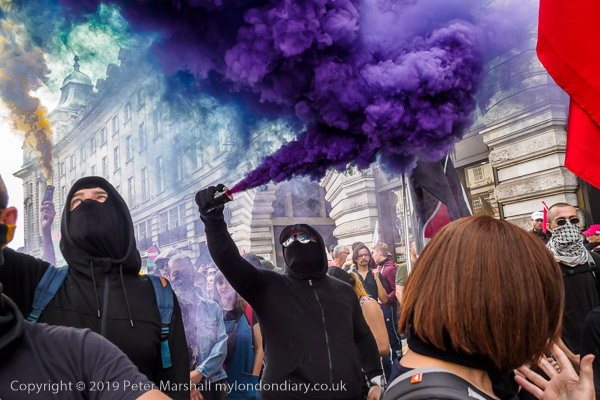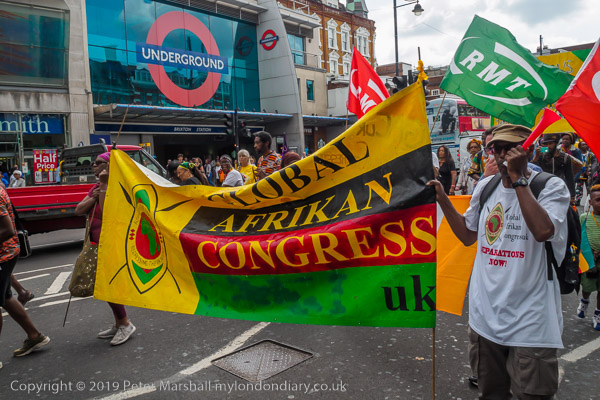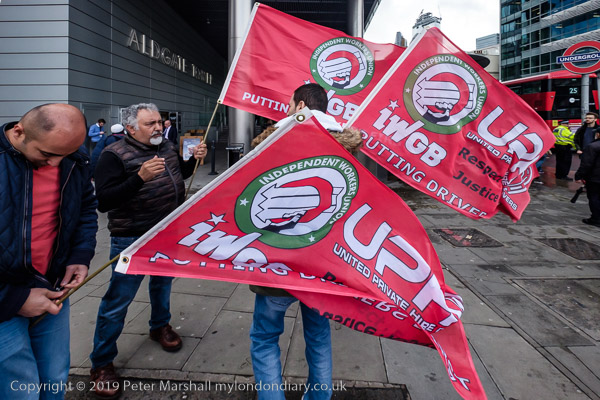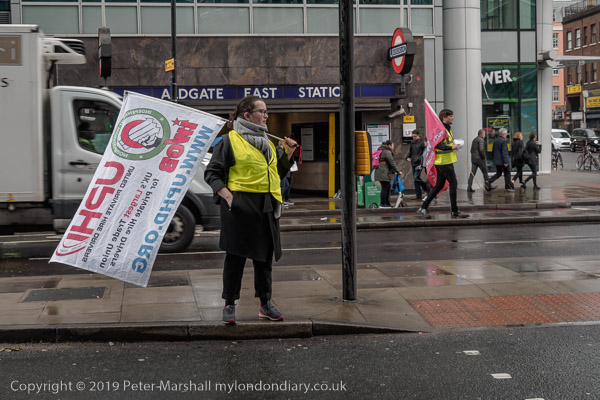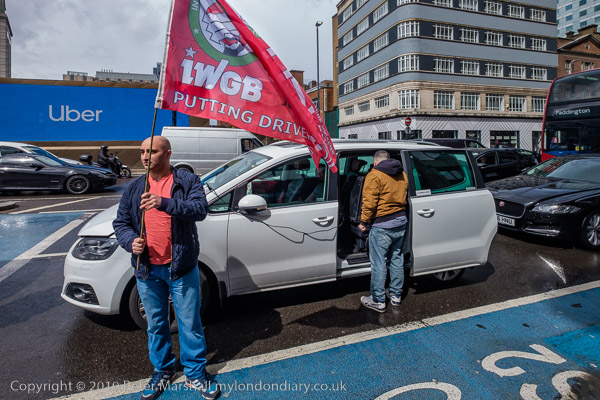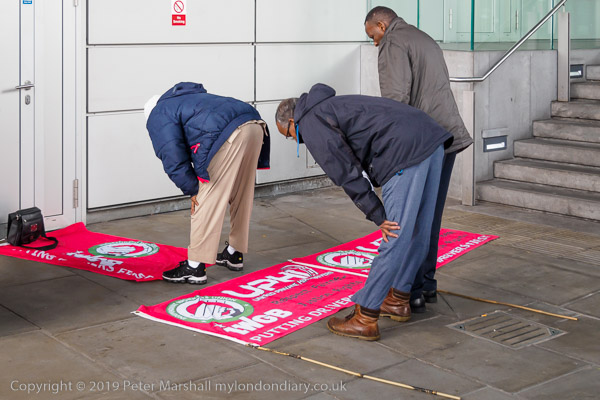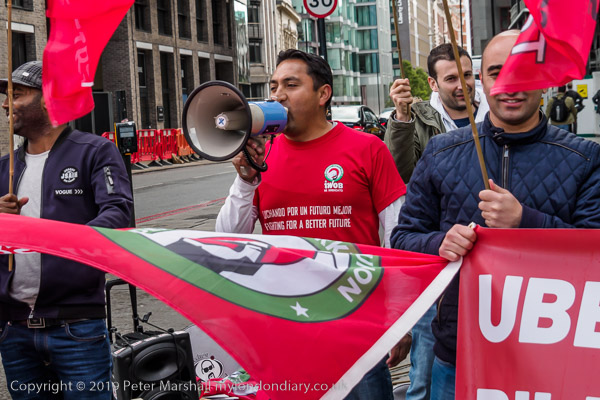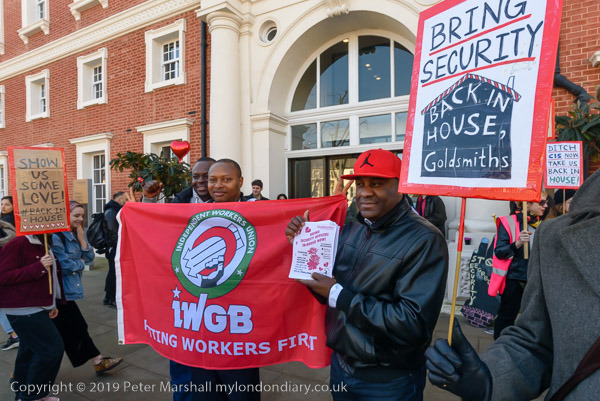
On St Valentine’s Day, Feb 14 2019, the Security and Receptionists Branch of the IWGB union and students launched their campaign for Goldsmiths University of London to directly employ its security officers, with a protest outside and inside the university buildings. The protest, on St Valentines Day, called on the university to show its workers some love.
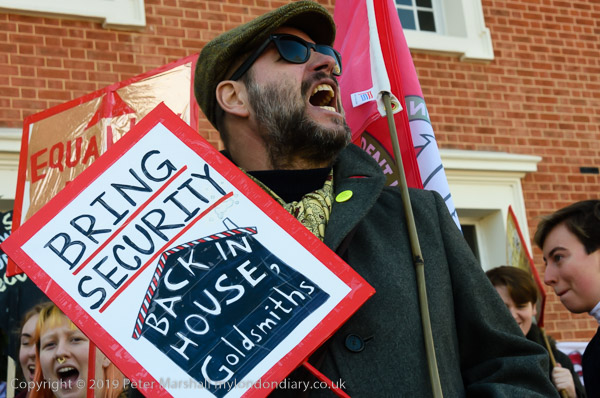
I was pleased to be invited to go to photograph the event, and thankful that unlike many union pickets it was to take place at lunchtime rather than at the kind of ungodly hour of the morning that many of our worst paid have to clock in. I’m afraid I decline all requests that would involve me getting out of bed well before dawn and leave those to younger photographers who live closer, in part because travel until after the morning peak into London costs more than any likely return from reproduction fees.
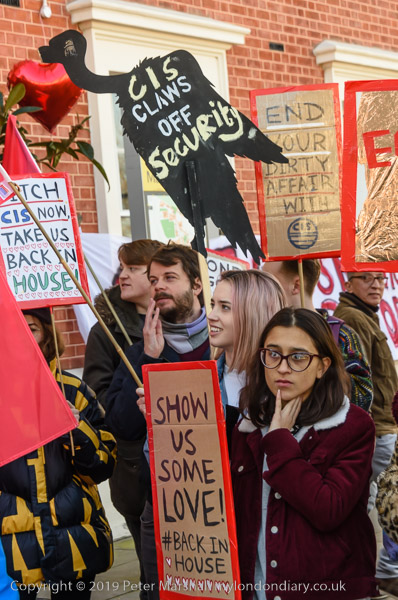
Goldsmiths is in New Cross, a rather run-down area of South London that I’ve known for years and is rapidly sprawling over the whole area. Long ago, before I started taking photographs I made the pilgrimage to Chris Wellard’s Jazz & Blues Record Shop on Lewisham Way, probably the finest in the world until its closure in the mid-70s, later demolished for a new block for the college just a few yards further down the road. Goldsmiths has never quite gained the same reputation, though I have been there for the odd (sometimes very odd) meeting and event since. And more often to visit a late artist and photographer friend whose studios were just a little further on down the road at Lewisham Arthouse.
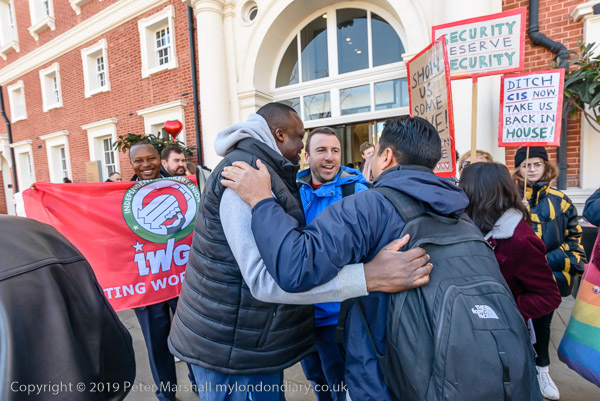
A group of students stood outside the old college building, waiting for the event to start, and eventually members of the IWGB arrived. Chris Wellard’s advertising always use to contain strict instructions to take the BR Southern trains from London Bridge rather than use the Underground (now the Overground) and perhaps they hadn’t observed these.
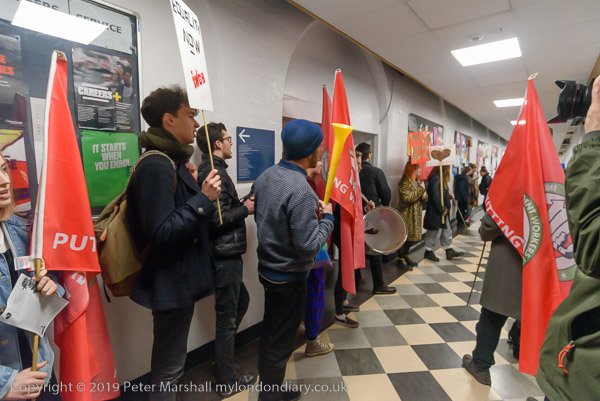
But things soon warmed up, and after some short speeches, including a warning from IWGB General Secretary Jason Moyer-Lee that this was a peaceful protest and we should be careful not to cause any damage a show of hands was voted to protest inside the building. We walked inside and made our way through the campus, stopping at various areas where people were eating lunch to for the union leaders to speak briefly – and to considerable applause from most – about the campaign.
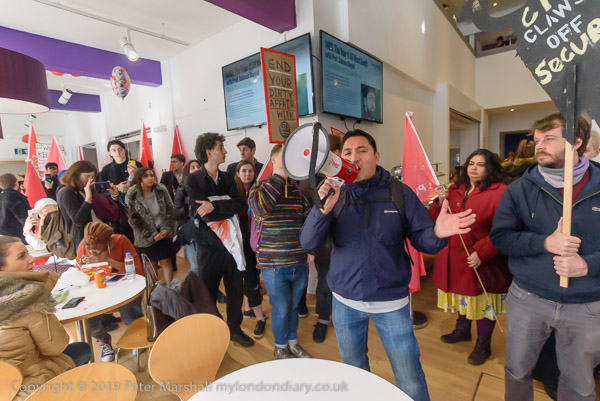
The protesters then walked down to New Cross Road, where the university management no has its offices in the former Deptford Town Hall, and sat down in the busy road outside for a few minutes blocking all traffic.
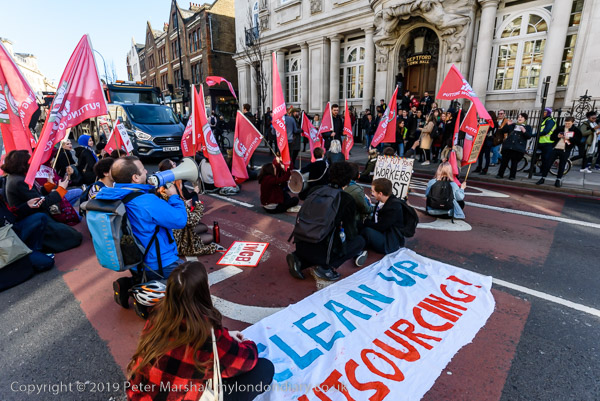
Walking back into the university campus, they group briefly occupied the foyer of the Ben Pimlott Building, before walking back to the front of the main building for a final rally.
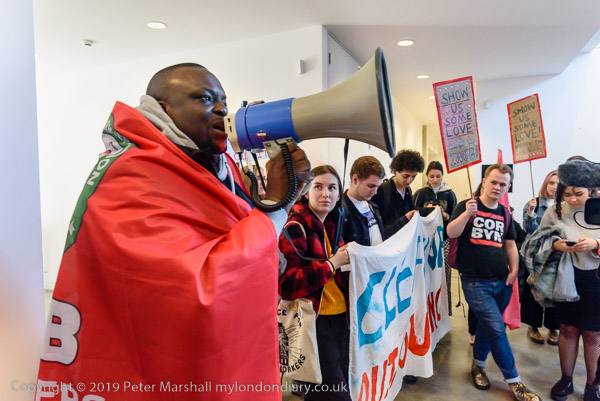
It had been a lively and highly noticeable protest, bringing the claim for security staff to be directly employed by the university with similar terms and benefits to others at Goldsmiths to the attention of a large number of students, staff and management.
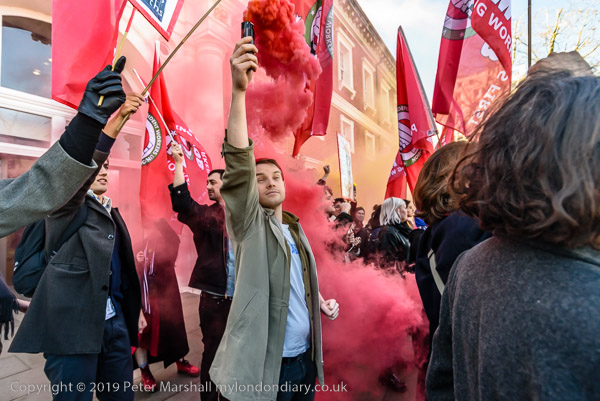
Exactly a year later, on Valentines Day 2020, the IWGB Security Guards & Receptionists Branch tweeted (with a short video):
More pictures at Bring Goldsmith’s Security In-House.
All photographs on this and my other sites, unless otherwise stated, are taken by and copyright of Peter Marshall, and are available for reproduction or can be bought as prints.
